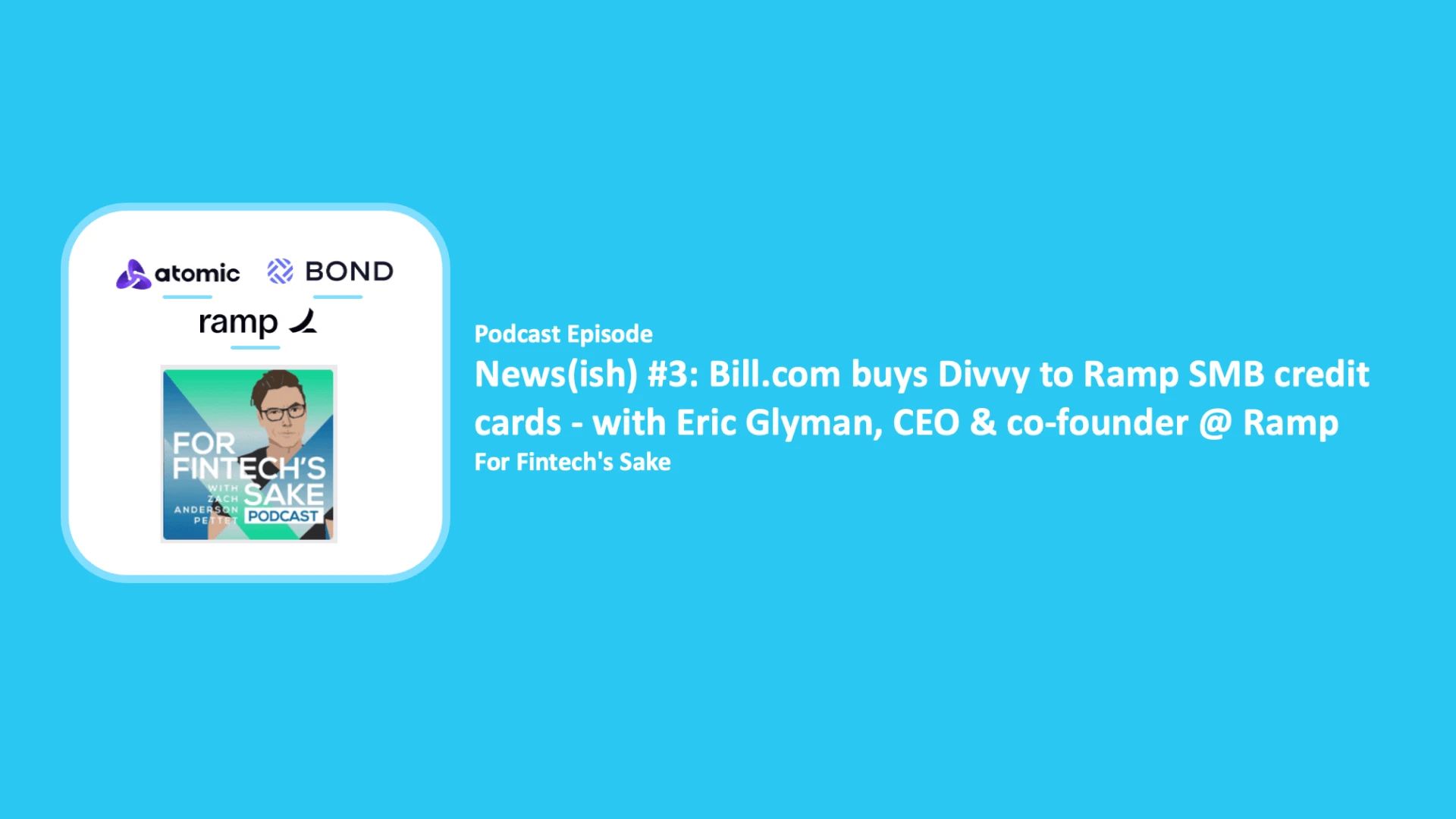Why Bill.com is buying Divvy to build an on-Ramp to corporate cards

Lindsay Davis
Head of Markets

Corporate and small business (SMBs) spend approximately $1.3 – $1.4 trillion on cards on an annual basis. Ramp’s co-founder and CEO Eric Glyman, Atomic’s Lindsay Davis, and Bond’s Zach Anderson Pettet breakdown expense management company Bill.com’s definitive agreement to acquire Divvy, a Utah-based corporate card provider, in a $2.5 billion cash and stock deal on the For Fintech Sake podcast.
See below for a few highlights from the conversation.
Though 2020 was an outlier with companies cutting spend during lockdowns to preserve cash and extend runway, the market is massive and on pace to come back as the country prepares to return to work with hybrid business operations.
Our conversation covers:
- How to differentiate corporate cards targeting tech startups, small businesses, and enterprise businesses
- Patterns of corporate card spending and savings during the first phases of the COVID-19 pandemic
- Our outlook on Bill.com’s definitive agreement to buy Divvy in a cash and stock deal worth $2.5 billion
- Why a bulge bracket bank did not acquire Divvy with insights on big bank’s appetite for fintech acquisitions and Eric’s previous exit to Capital One
- Ramp’s “no founder liability,” plans to consolidate the financial software stack, and what’s on the roadmap for 2021
Fast fintech facts:
Divvy
- Total deal valuation: $2.5 billion
- Deal terms: $625 million in cash and $1.87 billion of Bill.com common stock
- Traction: 7,500 monthly active small and medium-sized businesses (SMBs)
- Total payment volume (TPV): $4 billion annually
- Target demographic: Corporate cards for SMBs and tech startups
- Total funding prior to acquisition: $417.5 million
Bill.com
- Market cap: $12.7 billion (as of 5/7/21)
- Traction: 115,000 customers with a reach of 2.5 million members
- Target demographic: Accounting, expense management, and budgeting software for SMBs
- Q1’21 earnings: $59.7 million in revenues
Ramp
- Total raised: $320 million in equity and debt
- Last funding round: $115 million Q1’21
- Valuation: $1.6 billion
- Target demographic: Tech startups and small businesses
- Differentiators: Incentivizes corporate savings versus spending to earn points by offering companies 1.5% across every transaction. In an example, if a company had $200,000 monthly burn rate, they’d earn $36,000 in cashback annually.
Where to subscribe
You can also listen to this episode of the For Fintech Sake podcast on Spotify. We are looking to iterate on the format so please reach out or leave a review with your feedback.


